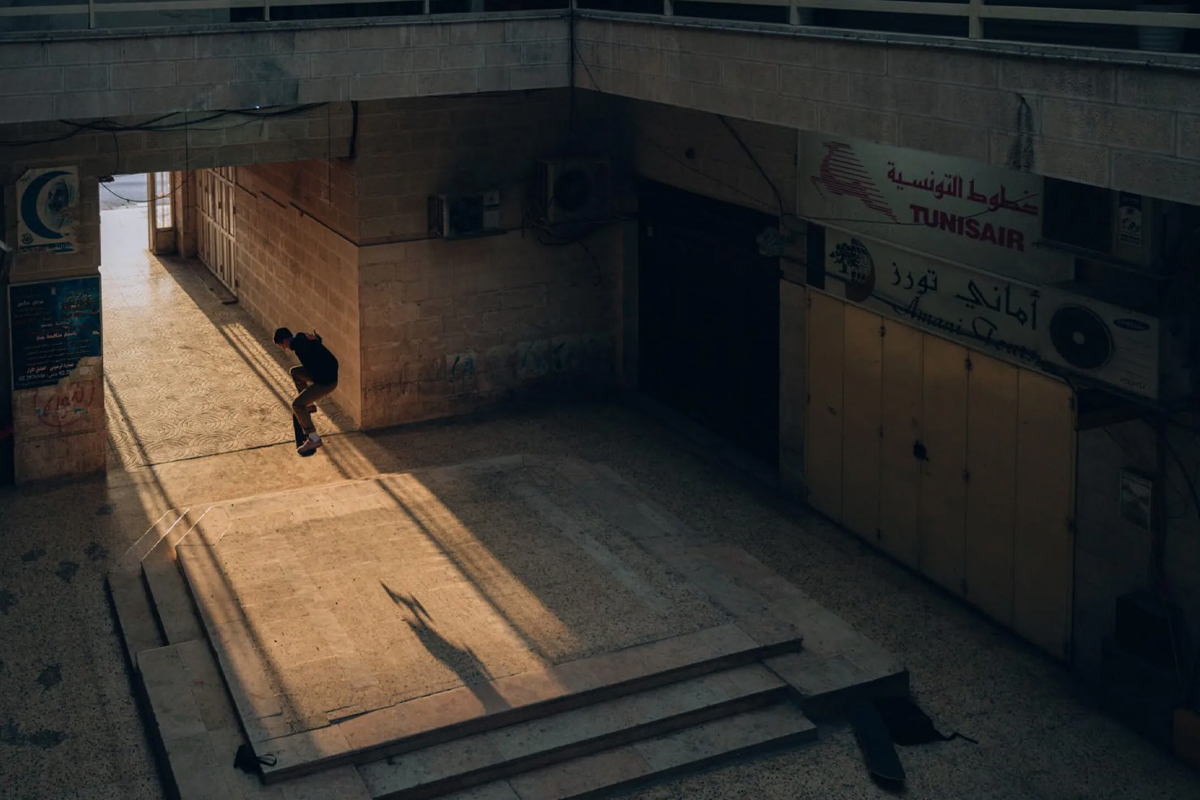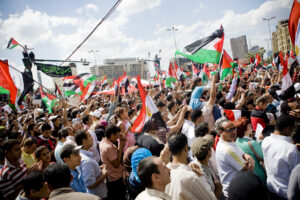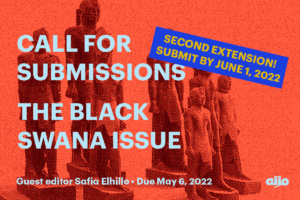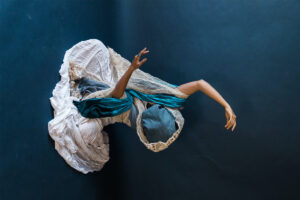
January 26, 2024
An Excerpt From “Landing”
by Maen Hammad
This excerpt comes from Palestinian American documentary photographer Maen Hammad’s forthcoming photo book, Landing, which explores the liberatory power of skateboarding through the lens of Palestine’s intimate skateboarding scene.
Growing up, my upbringing was untroubled. I was raised in an upper-class, sterilized Metro Detroit suburb as a first-generation immigrant and a third-generation Palestinian refugee. When I was two years old, my mama was offered a job at a hospital in Detroit, and my parents moved my brother and me from Ramallah, Palestine, to Troy, Michigan. Troy had a top-ten school district ranking, the crème de la crème for immigrant families. Troy placed me on a school-to-professional-degree trajectory before I could speak Arabic or English. I was ordained into queasy safeness, one that presented Fox Business News as a worldview and trained its citizenry in US exceptionalism.
Meanwhile, my family’s home was decorated throughout with Palestinian landscapes, symbols, and smells. In retrospect, I see that I appreciated that we were different growing up, even if I didn’t have words for it back then. I felt comfort knowing I was from somewhere else. “Palestine is where I am from.” That sentence has always made sense in my head despite the contradictions outside of it.
I could not erase the disharmony of diaspora—on the one hand, living in a US suburbia that would never be able to digest me whole and on the other, the contradictions of being a blindfolded Palestinian, out of sight and out of touch with home. Never quite escaping being on the margins of either experience, I found sustenance in skateboarding.
At first, it was the physiological, the fun—the free-fall—that reeled me in. I remember the first time baba dropped me off at the Troy skatepark. Everything was fast. I saw people much bigger than me, mammoths, flying down ramps. The physics of skaters dropping into a ramp was like that of an animated movie, and I so badly wanted my body to transform like theirs. That was the day I experienced the ecstasy of dropping in, into the world of skating.
Later, skateboarding’s appeal moved beyond physical exploration. It became the messaging behind the act, the community of the margins, and a constellation of skateparks and street spots that traced my cityscape. I became embedded in space and acquainted with all of its beauties and all of its pitfalls.
Eventually, while an undergrad at Michigan State University, I grew estranged from skating—I had forgone the sanctity of my board as the pressures of academia and fitting in took precedence. I had given it up and was now regretting it.
After completing my undergraduate studies in 2014, I visited Palestine for the first time in over a decade. I met skaters while I was studying Arabic in the village of Birzeit. At that point, it had been three years since I last skated. The Birzeit kids’ incessant need to skate reinvigorated my own. The kids were infatuated with skateboarding—the mechanics of landing different tricks and the overwhelming joy of thriving with their community. It was a must; a predetermined part of their day. I joined them for days, then months, and ultimately, was reminded of a desire for escape that I had actually never let go of.
In Palestine, everything was once again in free-fall as I chipped away at deconstructing my relationship to home. Being in the diaspora meant that until that point I had only lived alongside a parable of Palestine. Just a version of it—mostly an idea—manufactured through the different myths that scattered my house: our memories. Revisiting Palestine as an adult was a transformative experience. It flipped my life on its head. It was from that experience that I could begin to broach my family’s experience of displacement and my own partial return. I decided then that I must move to Palestine for good. I rejected hesitation about my decision. I processed the serendipity of my trip, stumbling back into a world so close to mine, with skating being at the crux of both.
I have come to learn that skateboarding has always given me space to be with myself and it was not until I moved back to Palestine that I could try to shed the layers that had weighed me down. Through this reconnection to both Palestine and skateboarding, each a radical undertaking in its own right, I felt more like myself than ever before. It is with this landing that I came to trust my own movement through these evolving worlds.
What follows are layouts from the first chapter of Landing (forthcoming), designed and edited by Roï Saade, which is a long-term documentary book including photography, poetry, and critical writing made in Palestine between 2015–2022.




















Maen Hammad considers himself a dedicated creative, always exploring the imaginative and playing around with the mundane. Hammad has been documenting the Palestinian skateboard scene for the last seven years and engages in reciprocal nourishment with this community. He was born in Palestine, raised in the American suburbs of Michigan, and is currently based in between Boston and Ramallah. Hammad’s work has been exhibited in Dubai, Paris, the Netherlands, and New York, and he has work in the permanent collection of the Museum of Fine Arts, Houston. He also has been published in Time, i-D, and the Caravan. Besides being a documentary photographer, he is also a human rights researcher and campaigner.

Toward a Free Palestine: Resources to Learn About and Act for Palestine
We are proud to present this text as part of a list of resources to take action for and learn about Palestine, as well as works by Palestinian artists, writers, activists, and cultural workers.










